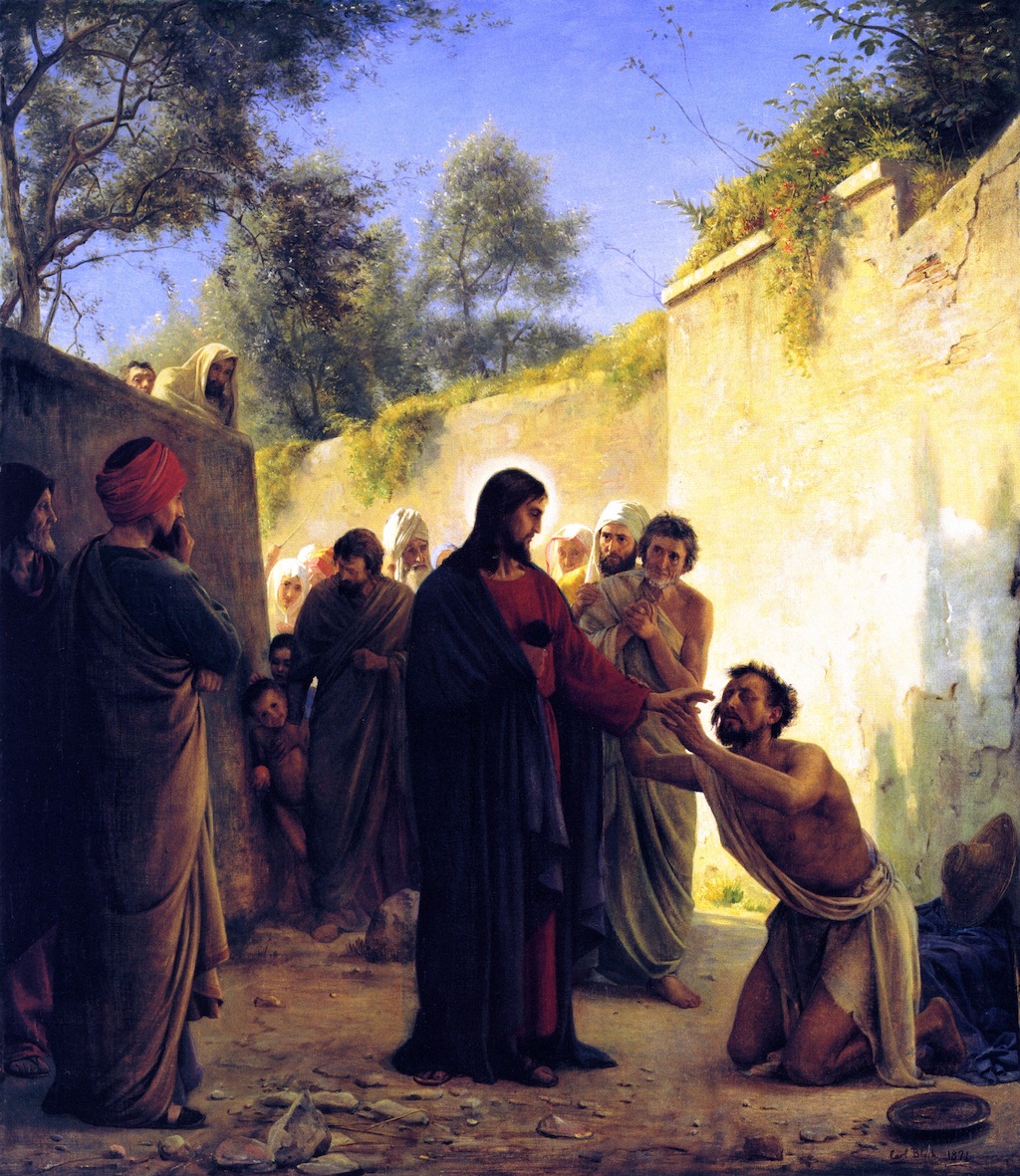
[Pearls Ep 163: Answering atheism Tuesday.]
The full version of Sunday’s Gospel reading (John 9, 1-41) includes this from Jesus:
“I came into this world for judgment, so that those who do not see might see, and those who do see might become blind.”
The great scripture expositor Cornelius a Lapide sums up the teachings of the Fathers that, “For Christ came not in order that the Scribes should be made blind; but their blindness was a result of Christ’s preaching, not from anything on His part, but from their own pride and fault.”
Jesus doesn’t desire the scribes and pharisees to be blind; His presence simply reveals the blindness that is caused by their hardness of heart, or “unyielding obstinacy” in the words of St. Cyril of Alexandria.
We see this again and again throughout scripture and modern times.
This is the example in the Exodus of Pharaoh, who’s heart was so hard that even after 10 supernatural plagues, he still refused to acknowledge God’s sovereignty.
This is the example of Pentecost, when the Apostles descend from the Upper Room to preach to the crowd. The Apostles have flames over their heads and speak so people hear them in their own language. And yet, some in the crowd, rather than admit to the miracle that is happening right before their eyes and ears, scoff “they have had too much new wine.” Their objection doesn’t even make sense – wine or no wine, how could the crowd hear the preaching in their own language? And, what about the tongues of fire over the Apostles’ heads? But they had to have something to latch onto other than the truth. They were made blind (and deaf) by their pride.
The “great” existentialist Friedrich Nietzsche (“God is dead”) drove himself to madness rather than admit to the existence of goodness and compassion, because anything of that sort would have forced him to acknowledge the existence of God.
And what of today? The Blessed Mother, in apparitions at Garabandal, Spain, reportedly revealed that there would be a worldwide “illumination of conscience” – everyone in the world, at the same moment of time, would see their entire life as God sees it. She also revealed that even after such a miraculous event, there would be many who would write it off as some manner of group hallucination, perhaps caused by solar activity.
Regardless of what opinion you might have about Marian apparitions, it’s not hard to imagine a fallen world willingly disbelieve a direct encounter with God.
And that is exactly what Christ is warning in this Gospel passage – there will be those of such hardened hearts, that even when they come face-to-face with Him it will be as if they are blind. They will not see the Creator of the Universe (and the creator of themselves), they will see only someone who must be opposed at all cost.
What does that mean for us?
It should be encouraging in an inverted sort of way. Even the direct experience of Christ won’t change some people’s hearts – the one thing Christ won’t do is compel belief. And so we shouldn’t be surprised, or discouraged, if we aren’t able to convince some people of His reality.
Fortunately, Christ doesn’t expect that we’ll convert people. Only that we’ll try.
Lenten blessings –
Steve
Steve and Karen Smith
Interior Life
Postscript: John 9:1, 6-9, 13-17, 34-38
As Jesus passed by he saw a man blind from birth. He spat on the ground and made clay with the saliva, and smeared the clay on his eyes, and said to him, “Go wash in the Pool of Siloam” — which means Sent —. So he went and washed, and came back able to see.
His neighbors and those who had seen him earlier as a beggar said, “Isn’t this the one who used to sit and beg?” Some said, “It is,” but others said, “No, he just looks like him.” He said, “I am.”
They brought the one who was once blind to the Pharisees. Now Jesus had made clay and opened his eyes on a sabbath. So then the Pharisees also asked him how he was able to see. He said to them, “He put clay on my eyes, and I washed, and now I can see.” So some of the Pharisees said, “This man is not from God, because he does not keep the sabbath.”
But others said, “How can a sinful man do such signs?” And there was a division among them. So they said to the blind man again, “What do you have to say about him, since he opened your eyes?” He said, “He is a prophet.”
They answered and said to him, “You were born totally in sin, and are you trying to teach us?” Then they threw him out.
When Jesus heard that they had thrown him out, he found him and said, “Do you believe in the Son of Man?” He answered and said, “Who is he, sir, that I may believe in him?” Jesus said to him, “You have seen him, and the one speaking with you is he.” He said, “I do believe, Lord,” and he worshiped him.
